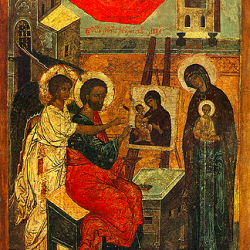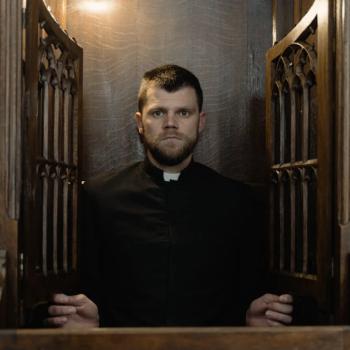Editors' Note:This article is part of the Public Square 2014 Summer Series: Conversations on Religious Trends. Read other perspectives from the Jewish community here.
Let's get one thing out of the way—neither the Jewish people, nor Judaism, are going anywhere; both we, and it, are here to stay. Or, perhaps not. But either way, of this you can be sure, it doesn't pay to worry about it much. In fact, those who have predicted the disappearance of either the Jews, or Judaism, or focused their worries on that supposed eventuality are themselves the ones who disappeared, not the Jews or their tradition.
The whole question of continuity—be it in the face of this year's Pew study, or any other data set over which the Jewish community's Cassandra class wring their hands—is an overblown deflection. People worry about the future of their community and its traditions most when they are least certain about the real value of either in the present. Or put another way, when people are busy in the present doing what they love, or otherwise feel compelled to do, they tend to worry less about its future.
Personally, I love how I "do Jewish," or how "I Jew," if you will. As a result, I spend less time and energy worrying about the future, and more time Jew'ing in ways that bring meaning and purpose to my life.
Don't get me wrong; as a parent, I hope my kids will live Jewish lives that are similar to mine. But the fact that they may not does not mean that if they don't do so, that will spell the end of either the Jewish people or of Judaism.
I don't confuse what is comfortable for me with what could be a rich and successful Jewish future. In fact, were that the test, then this almost 4,000-year-old story would never have made it this far along. Were that the case, the family rituals of Abraham and Sarah would not have become the nation of Moses. The nation of Moses would not have become the Kingdom of Saul and David. The people of those Kingdoms would not have survived exile, learning how to sing "God's song" by the rivers of the strange land of Babylon, or become a global people living successfully across the Roman and Parthian empires.
If recognizability to their forbearers were the test of successful continuity, rabbis would not have taken over from prophets and priests, nor would animal sacrifice be successfully replaced by a culture of prayer and text study. Not to mention that if continuity were a function of replication, a generation of bold heretic Jews would not have returned their nation and its traditions to their longed-for land and created the modern State of Israel.
In each of these moments, and too many more to list, it was precisely the act of assimilating critical elements of the larger culture in which Jews lived that assured Jewish continuity. About the only things which we can say are necessary for a people and its practices to live on are the will of people to claim membership for themselves, and to use their inherited past, however creatively, as a way to build better lives for themselves and those they love.
No, not all people's attempts to "do Jewish" will prove successful, and it's true that no Jewish generation has ever succeeded without the commitment to building homes and families that unambiguously identified as Jewish. But beyond that, however much some of us may not appreciate or approve of how other people are Jew'ing, we dare not assume that they are undoing the Jewish future. Thousands of years of history simply tell us otherwise.
For thousands of years, Jews have taken stock of their world and asked how to live with greater meaning, purpose, ethics, and love. They have fearlessly used what was most particularly theirs, and shamelessly assimilated what was best in the ambient culture in which they lived. Some of those experiments were more successful than others, but even the "failures" helped to make us who we are today.
More importantly, the results of those experiments can almost never be judged until long after the experimenters have passed from this world. So let's stop worrying so much about the Jewish future and focus instead on what works for us in the present. What stirs our hearts, engages our minds, and evokes our commitments? Answering those questions, and living in light of the answers, is how each and every generation has most successfully created its own legacy and contributed to its children's future.
8/20/2014 4:00:00 AM




